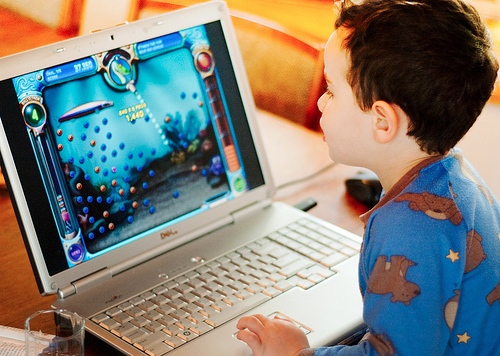It’s not about being right; it’s about doing the right thing. (Douglas Wheeler)
About Me
Wednesday, January 26, 2011
A Flipped Classroom
Race to Nowhere (taken from Dangerously Irrelevant)
I really liked Race to Nowhere
 JANUARY 21, 2011
JANUARY 21, 2011  28 COMMENTS
28 COMMENTS
Last September I blogged the trailer for the movie, Race to Nowhere, which focuses on the achievement pressures faced by many of our schoolchildren. Today I had an opportunity to attend a screening of the full movie. Here are 30 quotes from the film. Some of these might not be word-for-word but they’re close; I was paying attention to the movie, not my typing. I’ve highlighted my 8 favorites from the list below…
 I can’t really remember the last time I just went outside and ran around
I can’t really remember the last time I just went outside and ran around- We do whatever it takes to get an A
- When I had kids, I didn’t think that the only time I’d see them was for 20 minutes at dinner
- These kids are so overscheduled and tired … I’m afraid that our children are going to sue us for stealing their childhoods
- We want the best for them [so] we put pressure on them to be what we want them to be
- [All of this pressure] ends up turning kids into little professionals
- I figured out that not eating gave me more energy … but it still wasn’t enough to get everything done
- My school principal told me [when I tried to return from a treatment facility for anorexia and anxiety] that she didn’t want the teachers to have to worry about me – I was too much of a distraction for them [and other students]
- We lose boys because they tune out and we lose girls to depression
- The countries that outperform us on international tests actually give less homework than we do in the United States
- At what point did it become okay for schools to dictate how we spend our lives after the bell rings? [regarding homework]
- Parents need to educate themselves that homework isn’t going to make their students any smarter
- When American kids encounter questions [on international assessments that don’t look like what they’re used to from their rote practice], they fall apart
- These tests that they do so horrible on - they don’t test my kids on the curriculum, they test them on their culture and their culture isn’t represented on the tests
- I tell my [urban] students that learning is power – to do whatever you want to do in life, you have to be a learner and you have to care – that is not what the district wants from me as a teacher
- If we forget this [question] or do a different one, then we’re going to get in trouble and we’ll lose 5 minutes of recess [4th grader]
- Your 6–month-old is supposed to be sucking on his toes and thumbs, not doing flashcards
- [Students say] ‘The teacher doesn’t care – it’s just busy work - why CAN’T I just copy my homework?’
- The point of education is to learn, not memorize
- It’s impossible to cover all of the material for the AP course in one year. Literally impossible.
- After my daughter passed her AP French exam, she said, “I never have to speak French again.”
- So much of [kids’] time is structured. The only unstructured time they seem to have is the time they spend on the computer.
- What’s happening these days is that kids aren’t getting a chance to find out what they love to do.
- They’re 4 or 8 [years old] and they’re resume-building
- Parents say ‘My child is a good kid.’ No, they were a good performer. You never found out if they were a good kid. You just know they’re a good student, not a good solid kid.
- I stopped trying because if you don’t try, you can’t fail.
- I think that success in America is measured by how much money you make, not how happy you are in your life
- The environment and culture are so competitive that kids don’t feel like they can ever let people see their true selves
- If you’ve always had As, there’s only one way to go and that’s down, so that B feels like a failure
- We need to redefine success for kids … We have to get off this treadmill together. [We have to discuss] what does it take to create a happy, motivated, creative human being?
Discussion afterward
Here are a few statements afterward from the international educators and others who watched the film:
- None of us went into education to inflict harm on children but when you put it all together the net effect is often much different.
- At my previous school we eliminated homework and instead gave families a booklet called ‘Supporting Learning’ that gave them ideas of things they could do at home with their kids instead.
- How many of you assign homework? How would you handle a parent that asked if their child could opt out of the homework you assign? [this question was mine]
- Five to seven hours a day at school are plenty of time to do what we need to do academically with students
- Many of your parents have dedicated much of their lives to preparing students for Harvard (a process Alfie Kohn calls ‘Preparation H’). How do you handle it when as educators you’re trying to slow down, reduce workload, stop the ‘race to nowhere,’ etc. for kids but parents aren’t buying what you’re selling? [this question was mine]
- We have a responsibility to assuage the collective anxiety that we feel about ‘doing well.’
The film is about an hour long. Although it’s targeting what are in many ways polar opposite issues and demographics compared to Waiting for Superman, the film is well worth a watch. I greatly appreciated the opportunity to finally see it.
Closing thoughts
My children are 13, 10, and 6; so far they have been ‘excellent students.’ They live in a college town community and attend schools in which there is a lot of academic pressure on students - from parents, from other kids’ parents, from educators, from student peer groups, from society in general, etc. How much of that is being internalized by my children despite the messages that we try to send at home? Although my wife and I repeatedly discuss with our kids that learning is supposed to be a joyful experience – that we’d much rather that they love what and how they’re learning and have a chance to pursue their interests than get good grades – I still worry about what messages they’re incorporating into their mental models of success. It’s an ongoing conversation and battle and I’m not completely certain that we’re winning. I’m also uncertain if the fact that I’m a workaholic – albeit on things for which I’m usually interested and passionate – helps or hinders my cause with my kids.
I’ve recommended to my school district leadership team (administrators and school board) that they do a screening of this film for local parents. They’ve shown no interest to date, which is unfortunate because this film is extremely relevant for our community and our families.
I try to remember to ask my kids daily if they have a happy life. I hope they’ll always be honest with me.
Technology at an Early Age????
Panic! Children Are Learning to Use Technology at an Early Age!
by AUDREY on 24. JAN, 2011 in OP-ED
There’s something about headlines stirring up fear and revulsion over children’s usage of technology that really annoys me. The latest story making the rounds: an AVG study (yes, that’s AVG the antivirus company, not AVG a child development research group) that finds children are learning to use computers before learning other “life skills.”
That distinction right there should probably give folks pause, as I’d contend, at least, that a familiarity with technology is surely becoming a “life skill” in its own right.
But the AVG study goes on to cite a number of activities that preschool age children aren’t doing, implying by way of contrast, that preschoolers are on computers instead. (Gasp!)
“Kids these days” can use a mouse before they can learn to tie their shoes or ride a bike. The latter insight is being bandied about as some sort of sign we’re raising a generation of square-eyed robots who never venture outside to play (unless of course, they can carry their iPads with them).
The AVG survey does contain some interesting data, don’t get me wrong. 25% of children age 2 to 5 can open a web browser. 44% of 2 to 3 year olds know how to play a computer game. European preschoolers are more apt than U.S. preschoolers to know how to make a cellphone call. At this age, there is no gender division between boys and girls in their technology skills.
What bothers me about the study, however, is how these online activities are juxtaposed to those offline. Playing a computer game versus being able to swim. Using a smart-phone app versus riding a bike. Making a cellphone call versus tying your shoes.
I’m suspicious, perhaps, because my “life skills” at age 2 to 5 only just included how to tie my shoes. And honestly, I think I might’ve been 6 before I learned how to ride my bike. So when AVG says that “small children today are more likely to navigate with a mouse, play a computer game and increasingly – operate a smart-phone – than swim, tie their shoelaces or make their own breakfast,” I laugh. I’m actually quite thrilled to think that a preschooler would have access to technology because, yes, when you’re 4, you’re pretty damn incompetent — you can’t ride your bike or wipe your butt or read. You might not be able to read yet. But you can play. And you can play with technology. If you learn at age 4 how to use a mouse, does that preclude your learning at age 4 1/2 to swim? Seriously?
I really don’t think these changing skills are cause for panic. If anything, they should serve as a reason to teach kids the same sorts of safety measures we’d demand they understand before they hopped on a bike or jumped into a swimming pool.
Tuesday, January 18, 2011
Resiliency...
To be resilient…
- Focus on results. Embrace the fact that results are what we’re all really after. Effort and attempts are great first steps, but we need to act with commitment to delivering (just like we want people to do for us).
- Make lessons of failures. Minimize the tendency to make a mistake anything more than a lesson on how not to do something. We need to learn from our experiences and accept them as tuition for future success. And yes… Our mistakes might put us in a bind at times and have some uncomfortable consequences but again, that’s real life.
- Continue on. Smarter.
- Reinforce. Support each other (and ourselves) by continually reminding and encouraging one another to deliver on the first three points.

